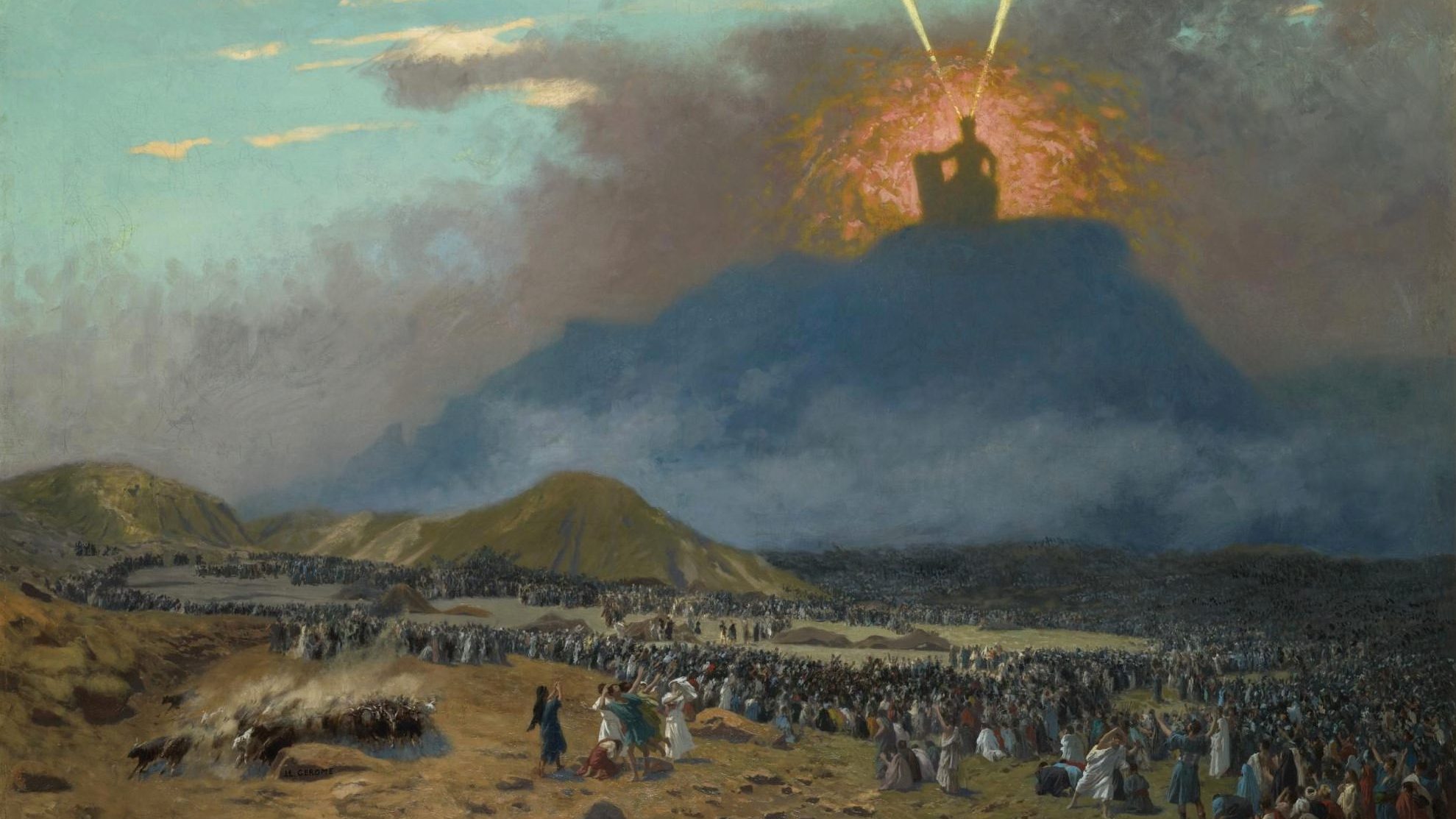A Prophet Like Moses
4th Sunday in Ordinary Time (Year B)
“If today you hear his voice, harden not your hearts.”
Psalm 95:8
This Sunday’s Old Testament reading (Dt 18:15-20) begins with Moses prophesying that God will one day raise up a prophet “like” himself from among the people of Israel and “to him you shall listen.” This prophecy deserves our attention and needs some further context to be fully appreciated.
Moses also says that this is what the people requested of God “on the day of assembly” at Horeb (Dt 18:16). What is he referring to?
During the Exodus, after the people of Israel had been liberated from Egypt, they gathered at the base of Mount Sinai, which is also known as Horeb. At this time, Moses, as their leader, ascended to the top of the mountain where God established His covenant with Israel and issued His commandments. As God and Moses conversed, the top of the mountain was shrouded in fire and cloud while thunder and lightning shook the earth (cf. Ex 19:16-25).
As a consequence, the people grew afraid and asked Moses to always speak to God on their behalf, and to speak God’s word to them on His behalf (cf. Ex 20:18-21). In other words, Moses was to serve as a mediator or emissary between the people and God, as God’s wonder and majesty were simply too much for them to bear.
This is the historical role of the prophet in ancient Israel. We shouldn’t think of a prophet simply as someone who predicts the future. The main function of a prophet is to speak on behalf of God (which may sometimes involve information about future happenings as warnings or predictions, but not always). One of the things that made the people of Israel so unique is that they were not originally established to be ruled by a king or any other form of human governance, but to be led by God through divinely appointed prophets.
After Moses’ death, we see his prophetic line continue with his successor, Joshua, which in Hebrew is Yehoshua or “God saves” — the same name as Jesus. And for a while, Israel was overseen by prophets and judges rather than kings, some of whom were more faithful to God than others. (This passage from Deuteronomy also includes a warning against false prophets).
But eventually the people of Israel grew envious of the other nations around them who were ruled by kings and asked God, through the prophet Samuel, to give them a king, as well. Samuel was hesitant to make such a request, but God told him, “You are not the one they are rejecting. They are rejecting me as their king,” and granted their request (see 1 Sam 8). Saul was established as the first king of Israel, followed by David, then Solomon, and after that the kingdom became divided with different kings ruling in the south and in the north.
More of these kings were corrupt than not, but through it all God continued to raise up prophets to speak His word to Israel and call them to repentance and faithfulness — prophets such as Elijah and Elisha, Jeremiah, Isaiah, Amos, Micah and others. Each of these prophets was, in a way, a fulfilment of the prophecy of Moses that we read today.
None of these prophets, however, was the ultimate fulfilment of Moses’ prophecy because none of their prophetic ministries was definitive. They spoke on behalf of God to certain people at certain times, but there was still a later and definitive prophet who was to come who would speak God’s word to all peoples for all times. This one would come from the people of Israel, as Moses said, and in fact would come from the line of David, making him a king as well as a prophet. This ultimate successor of Moses would also bear the same Hebrew name as Moses’ first successor, Yehoshua, Jesus of Nazareth, the Messiah, of whom God himself proclaimed, “This is my beloved Son; listen to Him” (Mt 17:5, Mk 9:7, Lk 9:35).
What does all this mean for us today? It means that we no longer need to wait for one who can speak to us on behalf of God. We no longer need to look for someone who can intercede with God on our behalf. We have both of these things in Jesus Christ.
Christ is the Word of God, the Divine Logos, and as such does not speak God’s word to us as a messenger, but teaches as “one with authority” as the gospel this Sunday attests (Mk 1:27). We need look no further than His words, His teachings, His example and His commands to provide us with guidance, counsel and hope.
And where do we encounter Christ’s definitive prophetic word? It is through the Church. Christ told the Apostles (and by extension their successors, “He who hears you hears me” (Lk 10:16), and sent His Holy Spirit to guide the Church into truth (cf. Jn 15:26); and through the Sacred Scriptures which that same Church teaches are divinely inspired.
So let’s not foolishly look to any other voice to rule and guide us, but wisely submit ourselves to the divine and definitive prophetic voice of the Word of God. If today you hear His voice, harden not your hearts.

